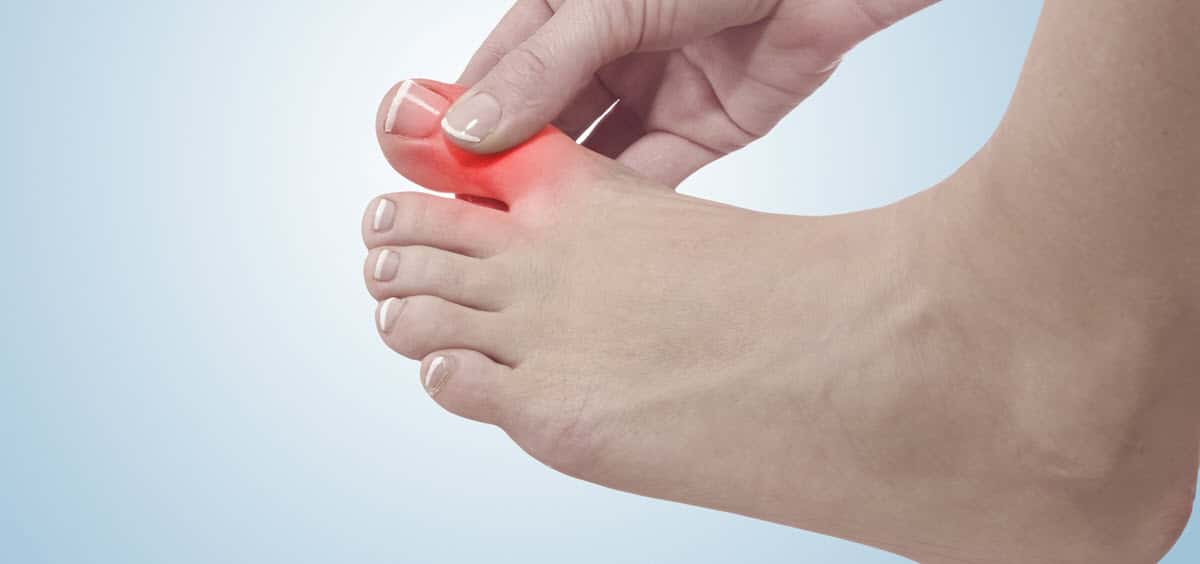
Cartiva Implant Failure: A Product Liability Nightmare for Patients
ACT NOW: Call Kansas City Accident Injury Attorneys for help with your injury claim
Arthritis is a common and painful medical condition that affects millions of people worldwide. In particular, big toe arthritis, also known as hallux limitus, can be debilitating, leading to stiffness, swelling, and limited mobility in the big toe joint. However, a new solution, the Cartiva implant, was developed and released as a claimed revolutionary breakthrough in treating big toe arthritis. Unfortunately, it has been determined that the Cartiva implant may have significant defects in design, leading to a high rate of failure.
The Cartiva implant is an artificial cartilage toe implant that is implanted in the big toe to treat the painful symptoms of big toe arthritis. The Cartiva implant was designed to act as a synthetic replacement for the degraded cartilage in the big toe. It is made of polyvinyl hydrogel (PVA hydrogel), a material that has unique properties that make it suitable for use in medical devices. The Cartiva implant is supposed to serve as a synthetic replacement for the degraded cartilage and alleviate the bone-on-bone friction.
If you have a Cartiva implant and have suffered injuries because this defective product failed, Kansas City Accident Injury Attorneys is your advocate. We are already accepting cases, and we may be able to help you, too. Contact us today to learn more.
Do I have a case?
Call now or fill out a form to receive a free confidential consultation
Cartiva Implant Manufacturing and Distribution History
The current manufacturer of the Cartiva toe implant is Stryker, a global medical device and healthcare product company headquartered in Michigan. Stryker obtained control of the Cartiva implant by acquiring Wright Medical in 2018. Wright Medical acquired Cartiva in 2018. Cartiva obtained FDA approval for Cartiva in 2016 via the pre-market-approval process. This shortcut process avoids full FDA review before approval.
Original Development of the Cartiva Implant and FDA Approval
Cartiva, Inc, based in Alpharetta, GA. originally developed the “Cartiva Synthetic Cartilage Implant” (SCI). The Cartiva implant was commercially distributed since 2002 with approvals in Europe, Canada and Brazil. At the time of FDA approval in the United States the Cartiva implant had been used internationally in over 4,000 procedures and had not been withdrawn from the market for any reason. The information and testing submitted by Cartiva to the FDA in the Premarket Approval Application (PMA) document included the information below regarding testing and results which has been summarized for brevity:
- Fatigue Testing. According to the testing data submitted by Cartiva to the FDA indicating a mechanical durability in excess of 5 years of continuous use.
- Wear Testing. According to Cartiva, the test data submitted was to simulate loading parameters intended to reflect the normal gait cycle and opposing surfaces to simulate the wear environment relating to the wear of the 1st metatarsophalangeal joint when utilizing the Cartiva implant. The devices were tested under maximum loads designed to simulate the worst-case wear conditions in terms of years. The testing indicated a low rate of wear compared with other polymers that are used in the load bearing surfaces of orthopedic devices.
- 1-Year Animal Implant Study. According to the test data submitted by Cartiva, this study was conducted pursuant to Good Laboratory Practices (GLP) in a goat to represent a load bearing large animal model. The study was designed to test the integrity of the Cartiva implant after 1 year and evaluate local and systemic toxicity and to assess if the Cartiva implant demonstrated an inflammatory response while in a load-bearing environment. The test animals received the Cartiva implant while the control animals received empty defects and were followed for 1 year. The data suggested that the surgical procedure to install the Cartiva implant was tolerated well, there were no obvious differences in necropsy (autopsy) between the two groups of animals, there were no instances of device failure (like dislodgement or fragmentation), non-significant changes to the opposing tibial surfaces in both groups and there was no difference in the presence of subarticular cysts in the control group versus the test animals, no implant wear was observed, and there was no particulate migration. According to Cartiva the test results from the study established that there was no local or systemic toxicity, no chronic inflammatory reaction around the implant that was ongoing, and there was no osteolytic bone loss.
- Conclusion. After reviewing the information in the PMA submitted by Cartiva, the FDA concluded that the data provided fully demonstrated the mechanical properties and performance of the Cartiva implant in simulated clinical use conditions and in worst case scenarios. The FDA concluded the data provided by Cartiva gave the FDA sufficient evidence to allow the initiation of clinical trials.
Summary of Clinical Studies
Cartiva asserted in the PMA that it reported findings from a clinical trial conducted to assess the efficacy and safety of the Cartiva implant compared to fusion, in treating degenerative or post-traumatic arthritis in the first metatarsophalangeal (MTP) joint, along with clinical conditions like hallux valgus or hallux limitus, hallux rigidus, or an unstable or painful metatarsophalangeal joint. The study involved 236 participants who were enrolled in a prospective, randomized, controlled, and multi-center trial conducted across 12 sites in Canada and the United Kingdom. Notably, this was claimed by Cartiva to be the largest randomized study conducted to date to investigate the treatment of osteoarthritis of the great toe.
FDA Approval 2016
Based on the PMA information provided by Cartiva and Clinical Studies the FDA approved the Cartiva implant for the treatment of toe arthritis because the studies and information provided indicated that the Cartiva implant provided significant pain relief and improved joint function compared to the more traditional treatment – fusion surgery. Cartiva was apparently allow to use the Premarket Approval process because the Cartiva implant was “substantially equivalent” to the standard FDA approved surgical fusion procedure. By utilizing this procedure Cartiva was able to avoid waiting for a full FDA review before receiving approval.
Cartiva Implant Procedures After Approval
Once the Cartiva implant was unleashed on patients in the US, the Cartiva implant has proven to be extremely problematic. The warning label on the Cartiva implant indicates that it has a 13.5% failure rate. Studies have indicated failure rates for the Cartiva implant as high as 64%. The primary reason for the high failure rate of the Cartiva implant is that the PVA hydrogel material has a tendency to shrink and compress after being implanted. Shrinkage of the Cartiva implant after insertion causes the implant to become mobile and move out of its original implant position. Migration of the Cartiva implant can impact nerves and cause extreme pain. When migration of the implant occurs, the patient must undergo corrective surgery to have the implant removed to alleviate the pain.
What Injuries May Be Caused by Failed Cartiva Implants?
The defects in the Cartiva implant have resulted in reported infections, implant fracture, osteolysis, bone over-production, cysts, silastic granulomas, nerve damage and other complications. This results in Cartiva implant recipients suffering debilitating pain and discomfort. The solution is patients having to have a second surgery to remove the Cartiva implant and then have a fusion surgery, or the implantation of another device such as the Arthosurface implant designed specifically as a replacement to the failed and defective Cartiva implant. The Arthosurface implant was designed to fit into the hole left by removing the Cartiva implant.
What Defects Are Present in the Cartiva Implant?
The defect is that the Catriva implant will shrink once it is implanted into the toe. The reason for the post-implantation shrinkage and migration of the Cartiva appears to be related to the material from which the implants are made. In certain patients, the polyvinyl material rapidly erodes after implantation and loses its structural integrity. The resulting shrinkage is what causes the implant to loosen and migrate.
Compensation for a Failed and Defective Cartiva Implant
Individuals who have experienced premature failure of a Cartiva toe implant may be entitled to compensation. Our firm is currently seeking Cartiva implant lawsuits in Missouri, Kansas and across the United States from individuals who have suffered from this defective implant. It is crucial to seek medical attention from a healthcare provider if you experience pain or stiffness in your big toe joint, as early diagnosis and treatment can prevent further damage.
In conclusion, while the Cartiva implant was developed as a breakthrough in treating big toe arthritis, it has proven to have significant defects that have caused a high rate of failure. The manufacturers of the Cartiva implant have not fully disclosed the risks associated with this implant. The initial FDA approval for the Cartiva implant was obtained based on a single, very limited study. That study significantly understated the failure rate resulting in countless patients receiving the defective Cartiva implants and suffering debilitating pain and significant damages. Individuals who have received this implant and have experienced complications or premature failure should seek legal counsel to determine if they are entitled to compensation.
How Kansas City Accident Injury Attorneys Can Help You
If you or a loved one experienced complications following a Cartiva implant, you could be eligible for compensation through a Cartiva big toe joint implant lawsuit. Our law firm specializes in helping clients recover compensation for various losses, such as past and future medical expenses, pain and suffering, loss of wages, and other related economic losses.
Despite being marketed as a superior alternative to joint fusion surgery, the Cartiva implant has led to increased pain and worsened conditions for many patients. Faulty design and misleading claims have resulted in plaintiffs requiring revision surgery, which can be difficult and disheartening after placing trust in the implant to alleviate discomfort.
Do You Have a Defective Cartiva Implant Attorney Near Me?
Kansas City Accident Injury Attorneys has multiple offices throughout Missouri and Kansas. Our primary location is in Kansas City, MO, just a few blocks away from City Hall, we have offices in Lee’s Summit, Blue Springs, Parkville, and St. Joseph, MO, as well as in Kansas City, Olathe, and Overland Park, KS by appointment only. If you cannot travel, we can schedule a phone or video consultation instead, and we can and do make hospital visits.
No matter where you are or what you need, rest assured knowing one of our experienced product liability lawyers is close by and ready to provide you with the personalized attention you deserve.
Contact our product liability lawyers today for help with a defective Cartiva implant claim
At Kansas City Accident Injury Attorneys, we understand the challenges that come with seeking compensation for defective products. Our team of experienced injury attorneys has helped numerous clients recover millions of dollars in compensation for their injuries. We are committed to advocating for your rights and seeking justice on your behalf. Contact us today for a free and confidential case evaluation by calling (816) 290-7621.


